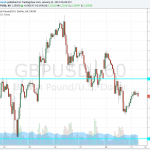Have you considered all the materials used to make a mobile phone? — typically 46 chemical elements, which is almost everything on the Periodic Table except noble gases and plutonium, thank goodness.
But don’t celebrate yet. Cadmium reserves are practically gone. Hence, the rush to make lithium batteries, so we can churn out another billion i-Phones, G-phones and netbooks. Manufacturers are going to economize on thinner layers of scarce gold and silver, which are no longer mined in meaningful quantities. Use of precious metals in consumer electronics and future battlefield systems depend entirely on recycling the cellphones and desktop computers that we already threw in the trash.
Efforts to harvest and recycle scarce elements from consumer electronics, medical equipment, industrial gear, etc, have been extremely successful in Europe, where strict regulation and common sense dictates heroic economy and recycling. 100 per cent of EU27 consumption of antinomy, cobalt, molybdenum, niobium, platinum, rare earth metals, tantalum, titanium minerals, and vanadium are imported from non-EU countries.
Are those critical supplies secure? Nope. Europeans are keenly aware of past, present, and likely future supply disruptions.
Take rhenium for example, used in jet engines blades, wind turbines, and rocket nozzles. 75 per cent of world supply comes from two companies, Molymet in Chile and Redmet in Kazakhstan. Five years ago, Redmet exports were blocked due to a dispute over debt with a copper company that supplied Redmet. The price of rhemium skyrocketed from USD 1,000 per kg, to USD 6,000 per kg. Known future production increases are already sold.
We live in a world of increasing scarcity and resource nationalism. China has banned export of aluminum ore and concentrates, copper, rare earth metals (used in DC motors), magnesium, nickel, and non-ferrous scrap. Not to be outdone, Russia banned export of ferrous scrap. China increased the price of antinomy from USD 0.80 per pound in 1995, to USD 2.25 in 2006. Supply at any price is uncertain today.












Leave A Comment